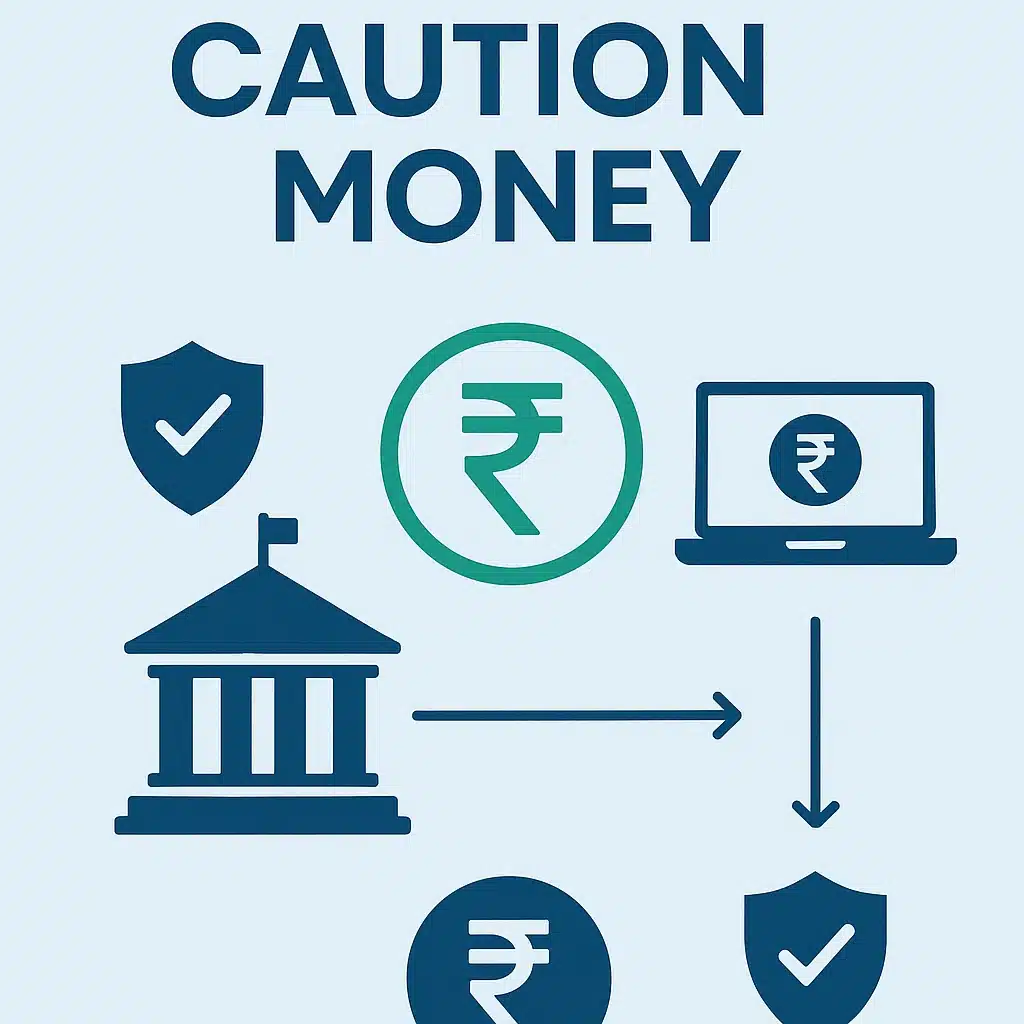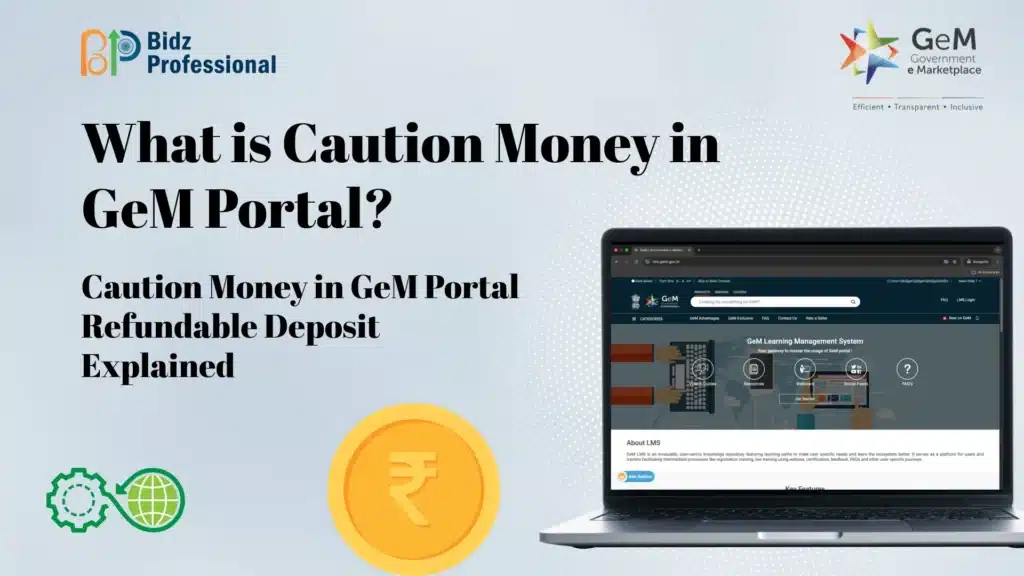The Government e-Marketplace (GeM) has become the backbone of public procurement in India. Every seller or service provider who wishes to work with government buyers must register on GeM and follow its rules. One of the most common questions new sellers ask is about caution money on the GeM portal. In this guide, we will explain what caution money is, why it is collected, how much you need to pay, and how it affects your business on GeM.
As Bidz Professional, a trusted GeM portal consultant, we often receive queries from vendors who are confused about this fee. Our goal in this blog is to make the concept clear so you can focus on growing your business without any doubts.

What is Caution Money in GeM?
Caution money is a one-time refundable deposit that every gem portal seller has to pay when registering on the GeM portal. It acts as a form of security for the government and ensures that only genuine businesses are listed. Unlike registration fees that are non-refundable, caution money is not a cost but a deposit. Once your account is closed or deactivated, the amount can be refunded back to your bank account after following the proper process.
In simple words, the government wants sellers to show commitment and seriousness by depositing this amount before they start listing products or services.
Why Does GeM Portal Collect Caution Money?
GeM Portal is designed to bring transparency, trust, and efficiency in government procurement. By charging caution money, the portal filters out fake or non-serious sellers. Here are the main reasons:
- Ensures authenticity: Only genuine vendors who are serious about doing business with the government will deposit the money.
- Builds trust: Buyers know that the sellers listed on GeM have cleared a basic level of verification.
- Promotes fair competition: It discourages casual or fraudulent registrations that can spoil the marketplace.
As a GeM portal consultant, we explain to our clients that caution money is not a penalty or hidden fee. It is a safeguard to maintain the quality of sellers on the platform.
How Much Caution Money Do Sellers Need to Pay?
The caution money depends on the annual turnover of your business. The slab system makes it fair for both small and large businesses.
- Sellers with a lower turnover pay a smaller deposit.
- Bigger companies with higher turnover pay a higher amount.
The exact fee structure is updated by GeM from time to time, so it is always advisable to check the official portal or consult an expert before planning your registration.
At Bidz Professional, we keep track of all GeM updates and guide you about the current caution money slab that applies to your business.
Is Caution Money Refundable?
Yes, caution money is fully refundable. If at any point you decide to close your GeM seller account or you are no longer active on the platform, you can raise a refund request. Once the GeM team verifies your account, the caution money will be returned to the bank account linked with your profile.
It is important to note that the refund does not happen automatically. You must apply for it through the GeM portal. A professional GeM consultant can help you with the process to make sure you receive your money without delays.
When Do You Need to Pay Caution Money?
Caution money is paid after seller registration but before you can start listing products or services on the GeM portal. Without completing this step, your profile remains incomplete, and you cannot participate in bids.
For first-time sellers, this step can feel confusing. That is why working with an experienced GeM portal consultant like Bidz Professional can save you time. We handle the entire process, from registration to caution money submission, so you do not make mistakes.
Common Misunderstandings About Caution Money
Many sellers confuse caution money with registration fees or vendor assessment charges. Here are a few clarifications:
- It is not a registration fee: Registration on GeM is free, caution money is separate.
- It is not vendor assessment fee: That is a different process to get OEM or Deemed OEM status.
- It is not a service charge: GeM does not charge sellers for providing services, only for caution money as security.
Understanding this difference is crucial to avoid miscommunication and unnecessary worries.
Why Work With a GeM Portal Consultant?
GeM portal can be complex for business and especially for first-time sellers. From registration and product listing to vendor assessment and caution money, the steps can feel complicated. A small mistake may cause rejection or delay in your tender or even your business can loose big orders from government departments.
This is where a GeM portal consultant like Bidz Professional can make a real difference. We:
- Explain every step in simple language.
- Ensure your documents are complete before submission.
- Guide you in paying caution money correctly.
- Help you stay updated with the latest GeM rules and policies.
- Provide ongoing support through our retainership services.
With our experience, you can focus on your business while we handle the technical details.
Final Thoughts
Caution money on GeM is not something to worry about. It is simply a refundable deposit to ensure that only genuine sellers participate in government procurement. The amount depends on your turnover, and you can claim it back if you stop selling on GeM.
At Bidz Professional, we have helped hundreds of businesses successfully complete their registration, pay caution money, and grow their sales on the portal. If you are planning to start your GeM journey or have doubts about caution money, feel free to reach out for a free consultation.
The GeM portal opens up a world of opportunities with government buyers, and understanding the basics like caution money ensures you start on the right track.

